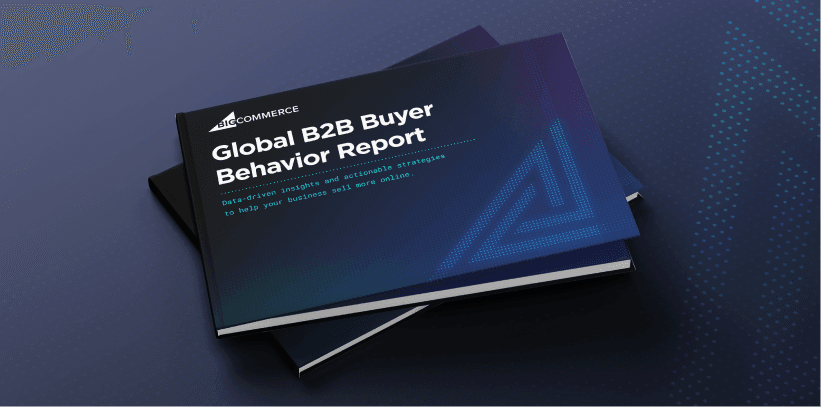by
As online and digital sales continue to become more prevalent, companies worldwide are looking for new opportunities to increase sales while cutting back on the backend.
Insert private label products.
Private label products are those that a retailer gets produced by a third party but sells under its own brand name. The retailer controls everything about the product or products, including the product's specs and how it's packaged.
Selling private label brands and products is increasingly becoming one of the most profitable ecommerce business models. In fact, in 2020, there were $158.8 million of private label consumer packaged goods (CPG) sold in the United States — nearly 20% of all CPG sales.
The best part? To participate in private labeling, you don't have to be a large retailer. By understanding what product categories work best, you can get a headstart on a potentially lucrative business option.
The following are 12 of the most lucrative sectors for private labeling:
1. Electronics
The consumer electronics industry is one of the largest and fastest growing in the nation, with more than $460 million of sales in 2021. The story remains the same beyond the US, with ecommerce websites like Alibaba specializing in and promoting thousands of private label electronics.
From handheld electronics to workout wristbands and headsets, the product ideas for private labeling are immense.
2. Supplements
Supplements have become one of the fast-growing markets over the last decade. In 2021, 80% of US adults took dietary supplements — a record-high.
With so many different categories of supplements available from essential oils and creams to gluten-free options, there are bound to be market gaps available for industrious entrepreneurs.
3. Cosmetics
The beauty and cosmetics industry is a massive one, with nearly $50 billion of sales in the United States in 2021 going towards beauty products and skin care.
Cosmetics are often bound to trends, especially in the online sphere. By understanding trending products through social media research, organizations can take advantage of a significant opportunity for private labeling.
4. Clothing
Clothing is an ever-present need for customers since the average household spends 3.8% of its income on clothing.
For companies looking to get into private labeling, clothing could be an easy win, with its multitude of potential options — from T-shirts to jeans — as well as its high online search volume.
5. Shoes
Just like clothing, shoes are an essential need for customers and there will always maintain a high demand for new products.
For those interested in starting their own shoe lines, private labeling can significantly help with the manufacturing side — you design the shoe, brand it and send it to a manufacturer to build. From there, it is yours to market and sell.
6. Kitchenware
Spend any time on television, and you’ll notice the number of advertisements for new and improved kitchen products. In 2020 alone, Americans spent more than $25 million purchasing kitchenware.
Anything ware you see on television is a possibility for private label products. If it’s a niche you’re interested in, you can find quick success with the right marketing strategy.
7. Gardening Tools
One byproduct of the COVID-19 pandemic and the rise of remote work was the growing popularity of gardening and outdoor maintenance.
From flowerpots and seeds to gardening tools, the new generation of gardeners could make an ideal target audience for private label business owners.
8. Home Decor
Like many other industries related to home goods supplies in the post-COVID world, the value of the home decor market has skyrocketed — with no end in sight.
For creative entrepreneurs, private label home decor products could be an opportunity to combine artistic designs with an ever-expanding supply of options, whether wall paint, frames, candles or cushions.
9. Camping Accessories
After being cooped up due to pandemic restrictions, many people have returned to recreational activities outside the home.
According to a recent poll, around two-thirds of Americans have begun to do more outdoor activities since quarantines and lockdowns in 2020.
This represents another significant opportunity for companies looking into outdoor and camping retail. Potential private label goods include camping gear such as multi-use backpacks, tent supplies and hiking books.
10. Toys
Wherever you find a child, you’ll find a desire and demand for children’s toys. From outdoor and sports toys to dolls and action figures, there is a significant market and plenty of children looking for things to play with.
The toy industry is potentially lucrative for private labels, with larger companies such as Walmart using private label product lines to increase their profit margins by relying on the functionality of smaller manufacturers.
11. Yoga Accessories
With more than 55 million yoga participants in the United States alone — and with most items being home-friendly — building out a base of yoga accessories is a potential grand slam as a private label product.
Just check out the search volume on marketplaces such as Amazon to see the popularity of yoga accessories, whether easy-to-make yoga mats or yoga pants.
12. Workout Equipment
Despite a drop in 2020 due to the COVID pandemic, the value of the global fitness market has been steadily increasing, with projects of more than $14 billion by 2028.
The easy part of selling workout equipment? The incredible diversity of products available for private labeling, including dumbbells, kettlebells, water bottles, resistance bands and more.
How to Increase Ecommerce Sales
Explore our collection of free resources designed to help you scale smarter and accelerate your online growth from $1 million to $100 million.
The Final Word
Private labeling is a growing option for both online businesses and offline retailers, especially as brand awareness and recognition continue to become a driving focus for organizations.
With private label products the power lies in the hands of the retailers themselves, allowing them to control production, pricing, product descriptions and branding — no matter where they're produced.



